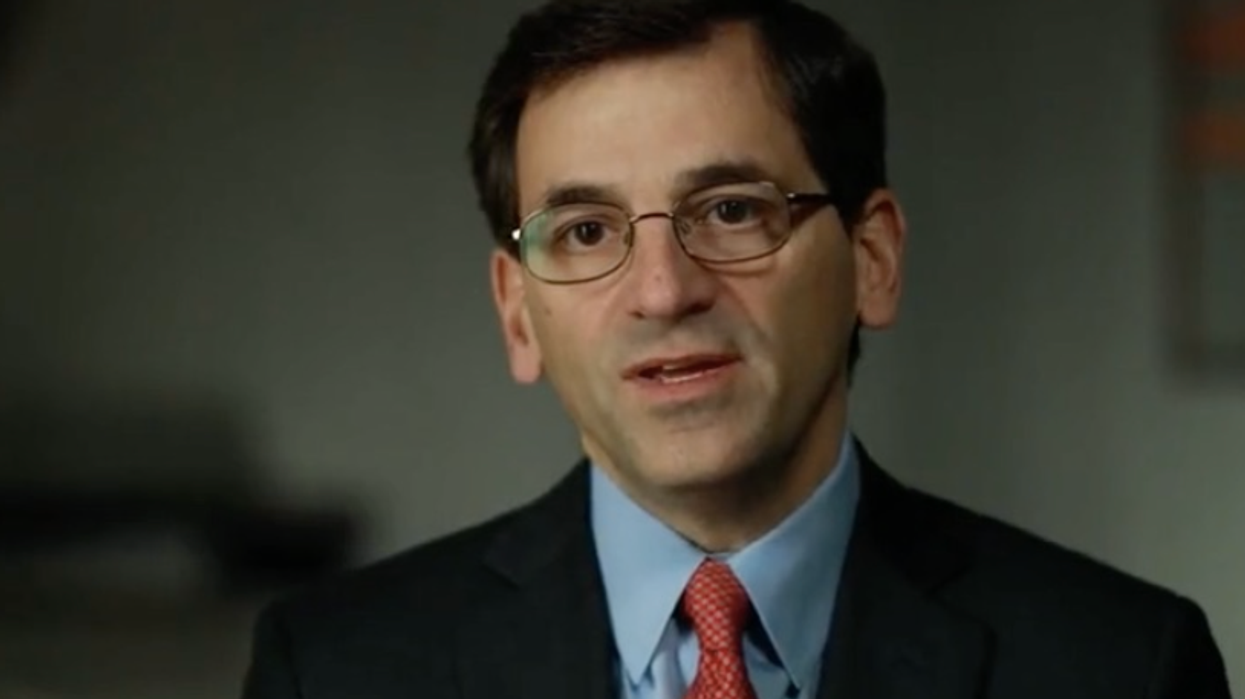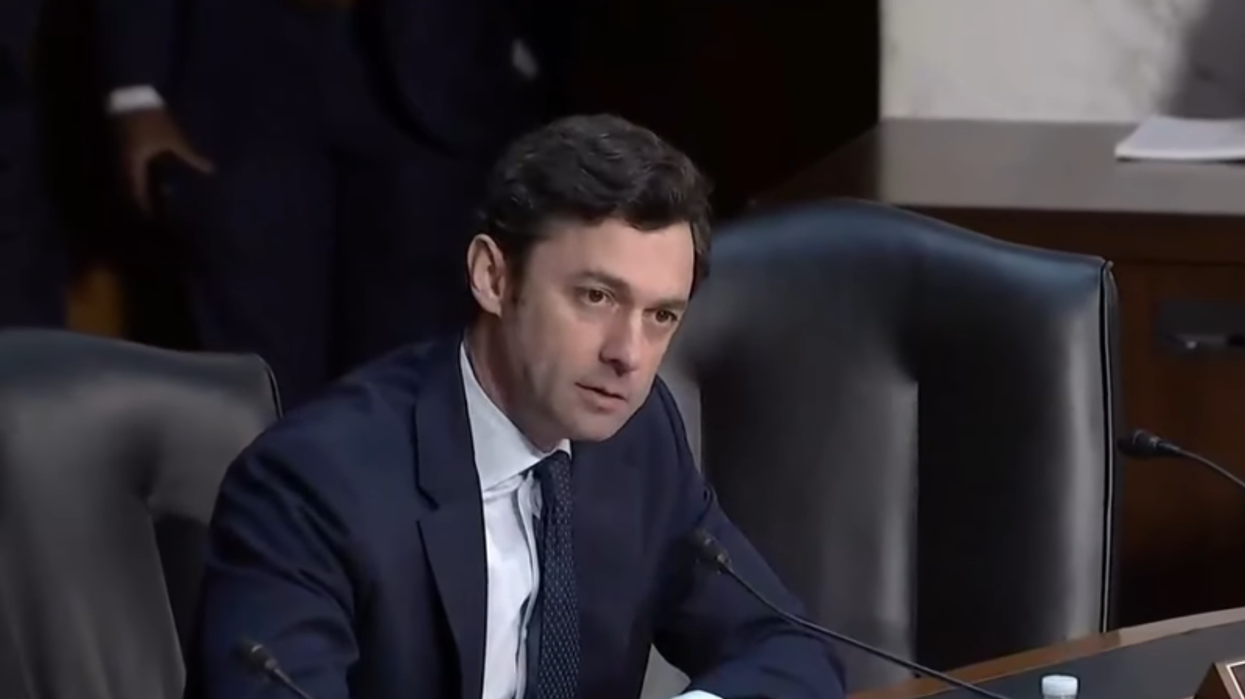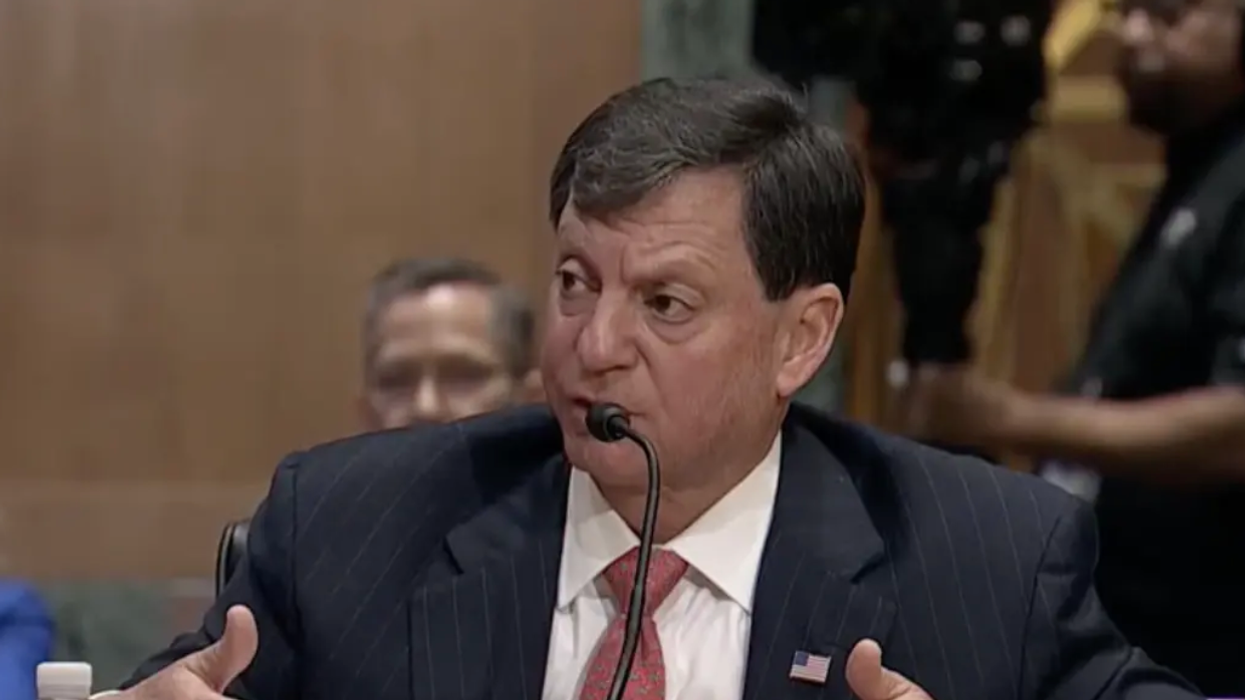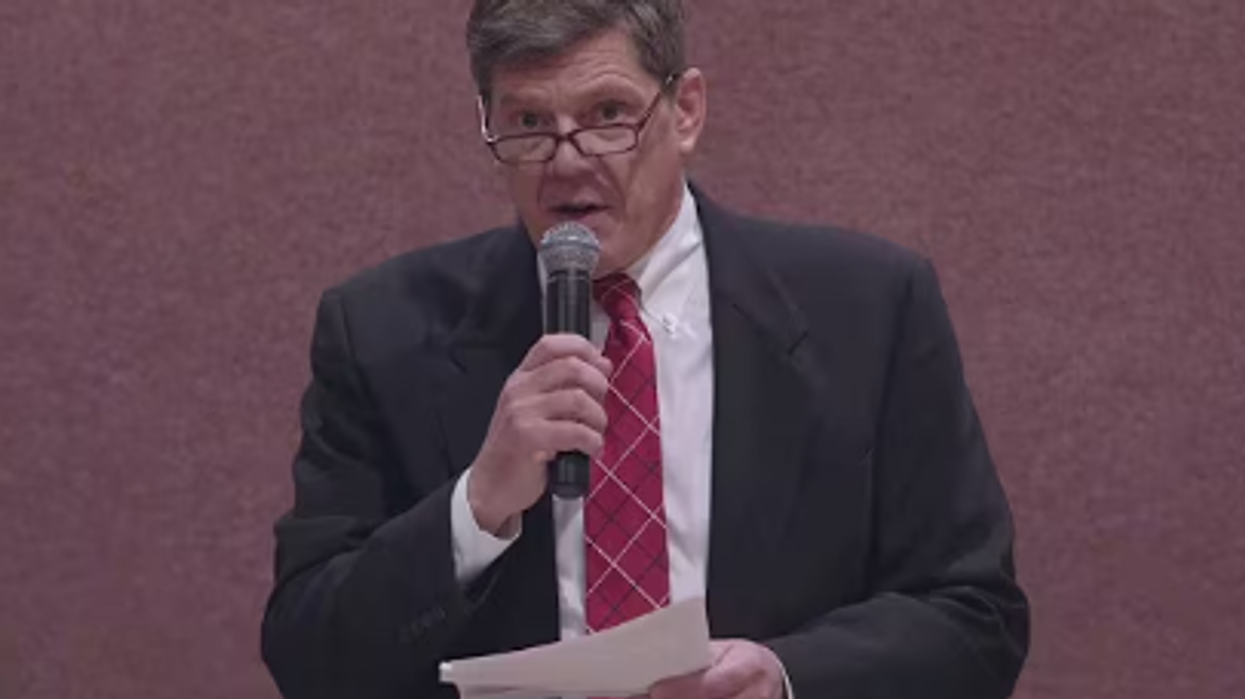Gag Me: Gushing New York Times Column Proclaims 'Age Of Trump'
The New York Times’ chief White House correspondent Peter Baker penned a “news analysis” on Monday that goes on at length about “The Age of Trump.” The cringe-worthy column, meant to coincide with the 10-year anniversary of Donald Trump first entering the Republican presidential race by maligning Mexican people as rapists, comes as the nation continues to deal with the fallout from his time in office—including rampant crime, countless deaths, and rising authoritarianism.
Baker sounds more like a fan gushing over a celebrity than a journalist discussing a conspiracy theorist bigot with dictatorial aspirations.
“Ten years of jaw-dropping, woke-busting, scandal-defying, status quo-smashing politics that have transformed America for good or ill in profoundly fundamental ways” is how this “journalist” describes the decade of hell that Americans have been forced to live through.
Yes, that is prose from a column in The New York Times, not a melodramatic monologue from Trump superfan Sean Hannity on Fox News. While Baker concedes that Trump is unpopular, he describes pro-MAGA voters as “the most consequential political force of modern times, rewriting all of the rules along the way.”
Here’s some context on Baker’s purple prose: Trump’s most significant political victory came in 2024 where he won the popular vote by 1.5 percent over former Vice President Kamala Harris. Trump lost the 2020 election by almost five points against former President Joe Biden and lost the popular vote in 2016 against former Secretary of State Hillary Clinton. Former President Barack Obama, the most recent two-term president before Trump, won by over seven points in 2008 and nearly four points in 2012.
Even worse, Baker’s column comes after yet another bloody weekend during a Trump presidency, not to be confused with the steady succession of bloody weekends that occurred during his first term as COVID-19 ravaged the nation and he pushed quack medicine and anti-Chinese racism.
On Sunday, Minnesota House Speaker Emerita Melissa Hortman and her husband, Mark, were shot dead in an apparent political assassination. State Sen. John Hoffman and his wife Yvette were also shot at their home, but are expected to recover. Early reporting indicates the alleged shooter was a Trump fan who espoused similar views to him opposing abortion and LGBTQ+ rights. The shooting follows years of Trump endorsing and encouraging political violence—including the January 6 attack on the Capitol that he incited.
On the same day the killings occurred, Trump was indulging in another fantasy of his, presiding over a military parade on the streets of Washington, D.C. While the president previously expressed envy at well-organized military parades in other nations, the D.C. event was a sparsely attended affair that didn’t even have the polish of a military parade held the same day at Disney World.
But millions of Americans turned out on the very same day to protest Trump and his lackeys like Vice President JD Vance, House Speaker Mike Johnson, and billionaire benefactor Elon Musk at “No King” protests across the nation. Unsurprisingly, the Times could only muster a print headline noting “thousands” had marched.
This is an ongoing pattern at the Times. The writers there have veered from a cringe-inducing review of Trump’s presidential portrait (they claimed he was “smizing,” Tyra Banks-style) to uncritically regurgitating his spin on taxes to presenting an obvious political operative as a simple man-on-the-street Black Trump supporter.
The past 10 years have seen the mainstream media trying over and over to normalize Trump despite all his obvious abnormalities, and the Times has led the charge. Trump is unpopular, which shows that the public doesn’t buy the lies—but the Times is too busy cheering on and normalizing his administration to notice.
Reprinted with permission from Daily Kos.












